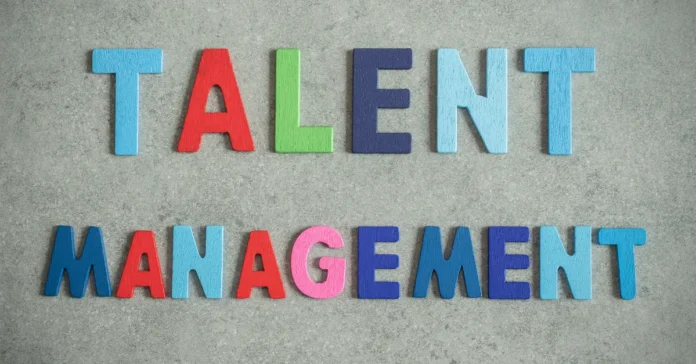Introduction
In today’s fast-paced business environment, developing high-performing teams is a crucial competitive advantage. A team that works well together not only achieves its goals but often surpasses expectations. One of the most effective ways to build such teams is through thoughtful and strategic talent management. By identifying, nurturing, and aligning the right talent with the right roles and goals, organizations can create environments where collaboration, innovation, and success thrive.
Here’s how organizations can leverage effective talent management to develop high-performing teams.
1. Identifying the Right Talent
The foundation of any high-performing team starts with the right talent. Talent management begins with identifying individuals who possess both the technical skills and the interpersonal attributes that fit the needs of the team. It’s essential to assess candidates not just for their qualifications but also for their ability to work collaboratively, handle challenges, and bring fresh perspectives to problem-solving.
Key strategies:
- Use a comprehensive recruitment process that includes assessments for both hard and soft skills.
- Develop a clear understanding of the skills required for the team’s success, not just for individual roles.
- Focus on cultural fit and adaptability to ensure the team functions cohesively.
2. Building a Diverse and Complementary Team
Diversity—whether in terms of skills, perspectives, or backgrounds—fosters creativity and innovation. High-performing teams thrive when they bring together individuals who complement each other’s strengths and weaknesses.
Key strategies:
- Foster diversity in hiring to bring a range of skills, experiences, and viewpoints to the team.
- Leverage the unique talents of each team member to create a well-rounded, versatile team.
- Encourage cross-functional collaboration where diverse skills can shine, ensuring innovation and problem-solving thrive.
3. Empowering Teams Through Clear Roles and Responsibilities
While diversity and individual talent are key, clear roles and responsibilities are vital for maintaining focus and accountability. Each team member should understand their contribution to the team’s goals and how their work impacts the broader organizational objectives.
Key strategies:
- Define roles clearly to avoid confusion and ensure everyone knows their responsibilities.
- Encourage autonomy within each role, giving team members ownership of their work and decisions.
- Align individual goals with team goals to create a shared sense of purpose.
4. Providing Ongoing Learning and Development
High-performing teams are constantly evolving. To stay ahead of industry trends and tackle new challenges, teams need opportunities for continuous learning and development. Talent management that prioritizes upskilling and reskilling empowers employees and keeps the team agile.
Key strategies:
- Invest in professional development programs tailored to the team’s needs and industry trends.
- Encourage knowledge sharing and collaboration to foster a culture of continuous learning.
- Create opportunities for cross-training to ensure that team members can step into each other’s roles when needed.
5. Encouraging Open Communication and Feedback
Effective communication is one of the most significant factors in building a high-performing team. Open communication helps resolve issues quickly, ensures alignment, and builds trust. Providing regular feedback—both positive and constructive—is also essential for growth and improvement.
Key strategies:
- Foster a culture of open dialogue where team members feel comfortable sharing ideas and concerns.
- Implement regular feedback loops, both formal (performance reviews) and informal (peer feedback sessions).
- Encourage team collaboration tools that streamline communication and keep everyone on the same page.
6. Aligning Team Goals with Organizational Vision
A high-performing team must understand how their work contributes to the broader goals of the organization. Talent management strategies should ensure that team members are not only aware of the company’s mission but also feel connected to it. Alignment with the organization’s goals keeps teams motivated and focused on delivering results.
Key strategies:
- Clearly articulate organizational goals and vision during onboarding and team meetings.
- Involve teams in goal-setting and strategic planning to give them ownership and accountability.
- Regularly revisit team goals to ensure alignment with changing business objectives.
7. Promoting Collaboration and Team Cohesion
Teams are at their best when they function as a unit, not just as a collection of individuals. Promoting collaboration and fostering a strong sense of camaraderie is essential for success. Talent management plays a key role in helping individuals become effective collaborators.
Key strategies:
- Organize team-building activities that promote trust and camaraderie.
- Encourage collaboration over competition and celebrate collective achievements.
- Provide tools and platforms that facilitate easy collaboration, such as project management software or communication apps.
8. Recognizing and Rewarding Performance
Recognition is a powerful motivator. High-performing teams thrive in environments where hard work is acknowledged and success is celebrated. Recognizing individual and team achievements fosters a culture of excellence and helps retain top talent.
Key strategies:
- Implement a recognition program that rewards both individual contributions and team accomplishments.
- Use a variety of recognition methods—from public praise to monetary rewards—to cater to different preferences.
- Foster a culture where team members also recognize each other’s efforts, creating peer-driven motivation.
Conclusion
Effective talent management is about more than just recruiting the best candidates—it’s about building an environment where individuals can grow, collaborate, and perform at their highest potential. By focusing on the right blend of talent, development, communication, and alignment, organizations can create high-performing teams that not only meet expectations but exceed them.
Developing high-performing teams requires an ongoing commitment to thoughtful talent management practices that evolve alongside the team’s needs and the organization’s goals. When done right, it leads to lasting success and a competitive edge in the marketplace.
#TalentManagement #HighPerformingTeams #TeamDevelopment #LeadershipDevelopment #EmployeeEngagement #WorkplaceCulture #Teamwork

